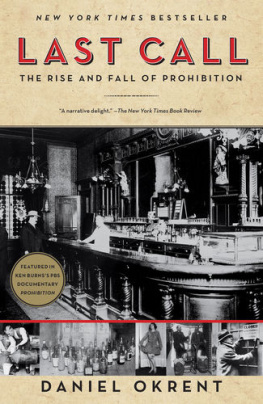Skinner v. Oklahoma and the Near Triumph of American Eugenics
Victoria F. Nourse
W. W. Norton & Company
New York London
Copyright 2008 by Victoria F. Nourse
For information about permission to reproduce selections from this book, write to Permissions, W. W. Norton & Company, Inc., 500 Fifth Avenue, New York, NY 10110
Nourse, Victoria F.
In reckless hands: Skinner v. Oklahoma and the near triumph of American eugenics / Victoria F. Nourse.1st ed.
p. cm.
Includes bibliographical references.
ISBN: 978-0-393-06964-8
1. Skinner, Jack T., d.1977Trials, litigation, etc. 2. Involuntary sterilizationLaw and legislationOklahoma. 3. Involuntary sterilizationLaw and legislationUnited States. 4. EugenicsUnited StatesHistory. I. Title.
KF224.S486N68 2008
344.7304'8dc22
W. W. Norton & Company, Inc.
500 Fifth Avenue, New York, N.Y. 10110
www.wwnorton.com
W. W. Norton & Company Ltd.
Castle House, 75/76 Wells Street, London W1T 3QT
Lawyers, with rare exceptions, have failed to lay bare that the law of the Supreme Court is enmeshed in the countrys history; historians no less have seemed to miss the fact that the countrys history is enmeshed in the law of the Supreme Court.
The study of United States legal history will come of age when its practitioners give as much effort to framing questions as to assembling answers.
Prologue: An Intellectual Seduction
[ E ] ugenics is a virile creed, full of hopefulness, and appealing to many of the noblest feelings of our nature.
Sir Francis Galton, founder of eugenics, 1905
I t was an almost irresistible intellectual seduction: a promise that asylums and prisons would fade away and that the problems of the old and infirm and unemployed would cease to trouble civilization. The seduction was once named the science of eugenics. Law would confront this seduction and its science in a case called Skinner v. Oklahoma .
The unlikely tale begins during the Great Depression in an Oklahoma prison, a place recalled today only because it plays a minor role in John Steinbecks The Grapes of Wrath . A brain trust of prisoners would fight a law decreeing that they should be sterilized. With the help of a frightened warden and a set of home-schooled lawyers, the prisoners case would reach the Supreme Court. The men of McAlester would win their battle against eugenicsin part because some of them died and escaped, violence being their principal currencybut mostly because larger events foretold the victory. It was Hitlers threat from abroad, and a constitutional revolution at home, that would propel the prisoners case toward success in Americas highest court.
Skinner v. Oklahoma was witness to some of the greatest failures and successes of governing in the twentieth centurya constitutional drama, a world war, and a dream that nature would resolve the publics most pressing problems. And yet Skinner s history has never been told. Legal experts view the Supreme Courts opinion as difficult or dangerous, even incomprehensible. As the great historian of science Thomas Kuhn once admonished his students, it is precisely when the incomprehensible rears its head that time reveals what we have forgotten. Then, history becomes discovery: it offers up hidden and orthogonal assumptions, inviting questions that the present does not and cannot even think to ask because the consciousness of the past has been lost. This book not only tells a story of ordinary men involved in an extraordinary legal case, but also a story of ordinary conceptsof equality and race, liberty and rightthat were once lived and thought so differently that a racial science could be seen as both banal and constitutional.
The real secret of Skinner v. Oklahoma is not, however, about constitutional law. The vast majority of this book concerns something different: the history of crime, inequality, and nature. Eugenics is only one of the many ways in which scientists and social scientists have attempted to find the natural secret to criminal tendencies, from theories that measured skulls to ones that posited born criminals, to the present days failed claims of chromosomes and genes and the evolutionary necessity of crimes like rape. The failure of such arguments over decades and even centuries should remind us of what the great anthropologist Mary Douglas has warned against: societys tendency to ground its social orderideas of who is high and who is lowin the idea of nature. The Supreme Court in Skinner v. Oklahoma rightly decided that crime, defined by arcane legal rules, cannot be found inside the bodies of men, that to make the great common law of crimes into a rule of genetics is to commit a very basic category mistake. The history of Skinner v. Oklahoma is thus a natural history: a history of how an idea of nature is transformed into an idea of political order.
In a day and age in which genes are touted as the grand cause for everything from criminality to spirituality, it is important to remember Skinner s history. Skinner recognized the public paradox of science: that once science exits the lab it may absorb the very politics and culture it aims to conquer. There was nothing about the discovery of the gene in Thomas Hunt Morgans laboratory that required the sterilization of the men of McAlester prison; for that the gene would have to exit the lab and become part of a solution to the public problems of crime and insanity. Institutions are selfish, and political institutions particularly sothey transform scientific questions quite readily into political questions. Once translated into the public sphere, there is no theory of nature that cannot become a grand political claim; this is a lesson that, in the day of the God gene and the gay gene, more should remember.
The title of this book is taken from a single line in the Supreme Courts opinion striking down Oklahomas sterilization law, warning that, in reckless hands, entire races or types might wither and disappear. In June 1942, when that line was written, few Americans could have known that the Nazis would truly try to eradicate the Jewish race on the theory of its natural inferiority. What Americans did already know was that eugenics, a fifty-year-old science, was a cloak for class snobbery, ancestor worship and race prejudice. There had been scientific critics of eugenics all alongthose who knew that eradicating recessive genes was a fools errandbut it would take politics to reveal the political pretensions of this science. By the late 1930s, the Nazis insistent portrayals of America itself as unfit and full of weaker white races transformed the publics understanding of racism from a matter of science into one of politics and, with it, the publics understanding of eugenics. By then, even eugenicists sought to distance themselves from racial assumptions and rebrand their science as democratic.
Today, this history has largely been forgotten because Skinner s meaning for legal experts is embroiled in the controversies of today. Because its opening lines refer to procreation as a civil right, Skinner is thought to lead to Roe v. Wade s right to privacy, the most controversial of constitutional claims. But, if this book is correct, Skinner v. Oklahoma has been embroiled, by left and right, in a debate that depends upon historical fallacy: Skinner was never argued or decided as a case primarily about rights. Skinner v. Oklahoma sits at the great fault line of constitutional law in the twentieth century. Before World War II, what we now consider basic civil rights were often weak, easily overcome by the needs of the common welfare, then called the police power. In Hitlers shadow, and with the help of Skinner s concept of strict scrutiny, the very idea of rights and equality would change in the postwar world. As Justice Frankfurter, the true author of Skinner s equality rationale and the great avatar of judicial restraint, once warned, rights are not timeless legal rules but containers of political experience, what I call vessels of history. The Supreme Courts decision in Skinner would not end sterilization in America, but its terrible compromises should not obscure its proper meaning today. Skinner s notions of right and equality reflect a long American history: the American Revolution and the Civil War were both fought to end forms of blood aristocracy, one known as monarchy, the other as slavery. Eugenics was simply known by a different name, the name of science.










